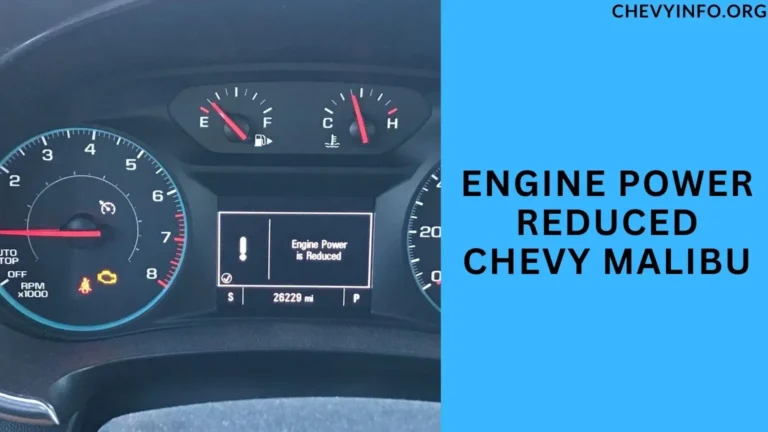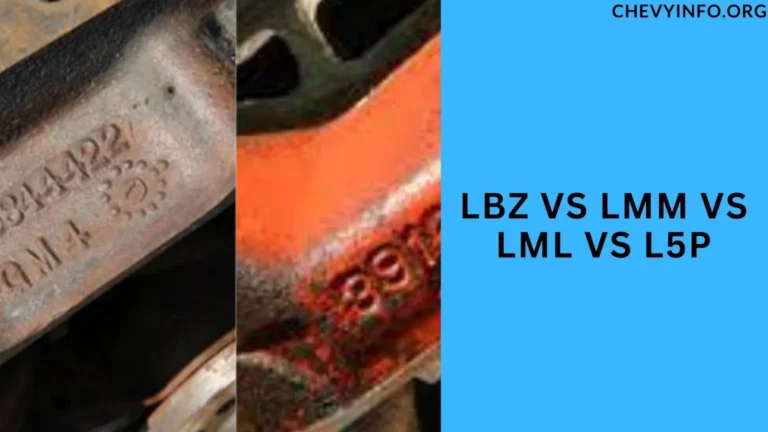Why Is My Chevy Impala Overheating? (Causes, Fix) of 2024
If you’ve ever found yourself asking, “Why is my Chevy Impala overheating?” you’re not alone. Overheating issues in vehicles, including the Chevy Impala, can be a common concern for car owners.
Understanding the causes, signs, and preventive measures can help you address this problem effectively.
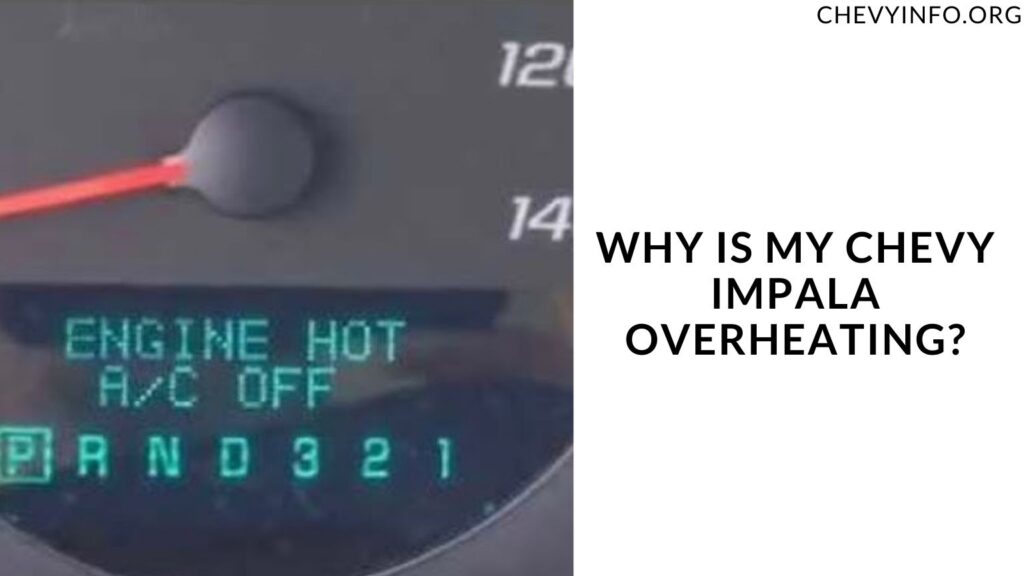
Introduction to Chevy Impala Overheating Issue
The Chevy Impala, like any other vehicle, relies on a properly functioning cooling system to regulate engine temperature.
When this system encounters problems, it can lead to overheating, which can be detrimental to the engine’s health and overall performance.
Common Causes of Overheating in Chevy Impala
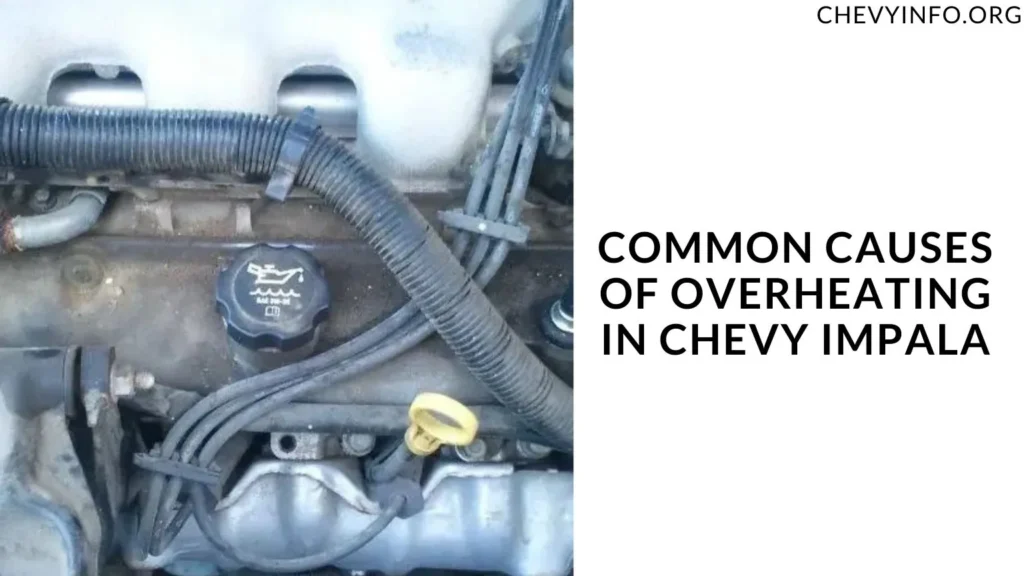
The Chevy Impala, like any other vehicle, can experience overheating due to various reasons. Below are some common causes of overheating in Chevy Impala:
Low Coolant Levels
One of the primary reasons for an overheating Impala is low coolant levels. Coolant is responsible for absorbing heat from the engine and dissipating it through the radiator. Insufficient coolant can result in inadequate heat dissipation, leading to overheating.
Cooling System Leaks
Leaks in the cooling system, such as those in hoses, the radiator, or the water pump, can cause a loss of coolant.
This loss compromises the system’s ability to regulate temperature effectively, contributing to overheating.
Faulty Thermostat
A malfunctioning thermostat may fail to open and close properly, disrupting the coolant flow. This can lead to overheating as the engine’s temperature regulation mechanism is compromised.
Radiator Issues
Issues with the radiator, such as clogs or damage, can hinder the cooling process. A damaged radiator cannot effectively transfer heat away from the engine, resulting in overheating.
Water Pump Problems
The water pump plays a crucial role in circulating coolant through the engine. Any issues with the water pump, such as leaks or failures, can impede coolant circulation, leading to overheating.
Engine Block Issues
In rare cases, issues within the engine block, such as a cracked block or blown head gasket, can cause overheating by allowing coolant to leak into areas where it shouldn’t be.
Signs of an Overheating Chevy Impala
It’s essential to recognize the signs of an overheating Impala to address the issue promptly.
Common signs include:
- Elevated temperature gauge readings
- Steam or smoke coming from the engine bay
- Coolant leaks under the vehicle
- Engine overheating warning lights or messages
Steps to Diagnose an Overheating Chevy Impala
If you suspect your Impala is overheating, follow these steps to diagnose the problem:
Checking Coolant Levels
Ensure the coolant levels are sufficient and top up if necessary. Low coolant levels can contribute to overheating.
Inspecting for Leaks
Inspect the cooling system components for any leaks. Addressing leaks promptly can prevent further coolant loss and overheating.
Testing the Thermostat
Test the thermostat to ensure it opens and closes correctly. A faulty thermostat can disrupt coolant flow and lead to overheating.
Examining the Radiator and Water Pump
Inspect the radiator for clogs or damage and check the water pump for leaks or failures. Addressing issues with these components can improve cooling system performance.
How to Prevent Chevy Impala from Overheating?
To prevent overheating issues in your Chevy Impala, follow these preventive measures:
- Perform regular maintenance checks, including coolant level inspections and system diagnostics.
- Keep coolant levels topped up and use the recommended coolant type for your vehicle.
- Address any cooling system leaks promptly to prevent coolant loss.
- Maintain proper engine temperature by ensuring the radiator, water pump, and thermostat are functioning correctly.
People also ask
What can cause a Chevy Impala to overheat?
Several factors can cause a Chevy Impala to overheat:
Coolant Leaks: Leaking coolant from hoses, radiators, water pumps, or gaskets can lead to insufficient coolant levels and overheating.
Thermostat Issues: A faulty thermostat can cause improper coolant flow, leading to overheating.
Radiator Problems: Clogged radiator, damaged fins, or malfunctioning radiator fan can hinder proper cooling and result in overheating.
Water Pump Failure: A failing water pump may not circulate coolant efficiently, causing overheating.
Cooling System Blockage: Blockages in the cooling system, such as a blocked radiator or heater core, can lead to overheating.
Engine Misfire: An engine misfire or other mechanical issues can generate excess heat and contribute to overheating.
How do I diagnose what’s making my car overheat?
To diagnose what’s causing your car to overheat:
Check Coolant Level: Ensure the coolant level is sufficient and there are no leaks.
Inspect Radiator and Hoses: Look for signs of leaks, damage, or blockages in the radiator and coolant hoses.
Test Thermostat: Check if the thermostat is opening and closing properly.
Inspect Water Pump: Ensure the water pump is functioning correctly and circulating coolant.
Check Radiator Fan: Test if the radiator fan is turning on when the engine reaches operating temperature.
Look for Signs of Engine Misfire: Check for signs of engine misfire, such as rough idling or loss of power.
Monitor Temperature Gauge: Keep an eye on the temperature gauge while driving to see if it consistently rises to overheating levels.
Why is my engine suddenly overheating?
Your engine may suddenly overheat due to various reasons, such as:
Low Coolant Level: Insufficient coolant can lead to overheating.
Coolant Leaks: Leaking hoses, radiators, water pumps, or gaskets can cause coolant loss.
Faulty Thermostat: A malfunctioning thermostat may not regulate coolant flow properly.
Radiator Issues: Clogged radiator, damaged fins, or malfunctioning radiator fan can hinder cooling.
Water Pump Failure: A failing water pump may not circulate coolant efficiently.
Engine Misfire: An engine misfire or mechanical problem can generate excess heat.
Blocked Cooling System: Blockages in the cooling system can impede coolant flow.
Why is my car overheating even though it has coolant?
Your car may still overheat despite having coolant due to several reasons:
Coolant Leaks: Even if there’s coolant in the system, leaks from hoses, radiators, water pumps, or gaskets can cause insufficient coolant levels and overheating.
Thermostat Issues: A faulty thermostat may not regulate coolant flow properly, leading to overheating.
Radiator Problems: Clogged radiator, damaged fins, or a malfunctioning radiator fan can hinder proper cooling.
Water Pump Failure: A failing water pump may not circulate coolant efficiently, causing overheating.
Air Pocket: Air trapped in the cooling system can prevent proper coolant circulation and lead to overheating.
Cooling System Blockage: Blockages in the cooling system, such as a blocked radiator or heater core, can also cause overheating.
Conclusion – Why is My Chevy Impala Overheating?
In conclusion, understanding why your Chevy Impala is overheating is crucial for maintaining its performance and longevity.
By addressing common causes, regularly maintaining your vehicle’s cooling system, and staying vigilant for warning signs, you can prevent overheating issues and enjoy smooth drives with your Impala.
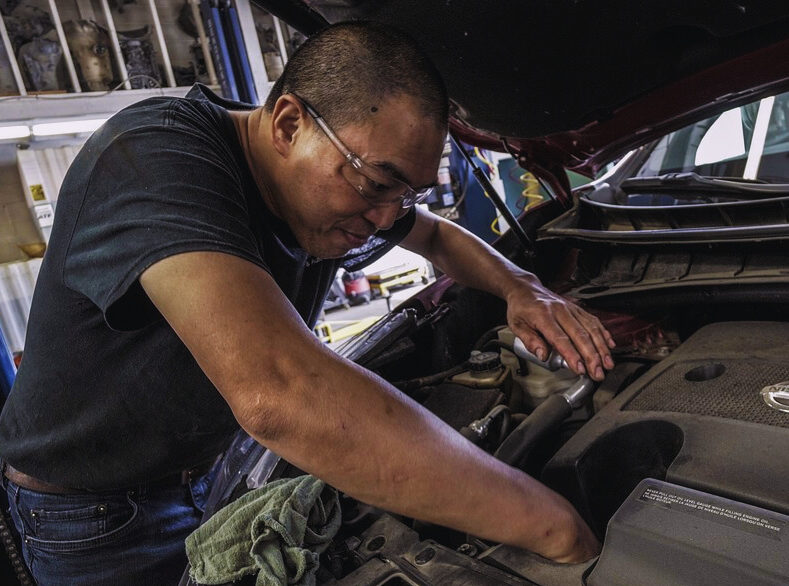
Henry Worner, a seasoned automotive expert with over 13 years of experience in car repair, maintenance, and performance enhancement, ChevyInfo.org was born out of a passion for Chevrolet vehicles. Henry’s deep-rooted love for everything Chevy has driven him to create a platform where fellow enthusiasts, car owners, and anyone interested in Chevy cars can find valuable insights, tips, and guidance.



